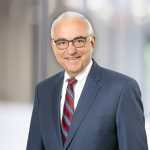Case Summary: 93/7 Split of Wrongful Death and Survivorship Settlement Funds Divided Between Estates of Married Couple Upheld by Appellate Division
Estate of Tanaka v. Kazary, 2023 WL 382310 (N.J. Super. App. Div. January 25, 2023)
Sayoko Tanaka (“Tanaka”) and Keith Rosello (“Rosello”), a married couple, were tragically struck by a vehicle and killed on December 1, 2017. Tanaka died before reaching the hospital, while Rosello lived another four months before succumbing to his extensive injuries. The defendants’ insurance policy paid $1,000,000 in settlement of the wrongful death and survivorship claims for both estates. After hearing testimony from relatives of Tanaka and Rosello, as well as from experts proffered by both estates, the trial court apportioned $930,000 of the settlement proceeds to the Rosello Estate and $70,000 to the Tanaka Estate. The Tanaka Estate appealed this allocation.
The Appellate Division analyzed the trial court’s allocation of settlement proceeds for abuse of discretion, which is a deferential standard. Suarez v. Berg, 117 N.J. Super 456, 464 (App. Div. 1971). It agreed with the trial court’s reliance on the testimony and calculations of the experts proffered by the Rosello Estate and its rejection of the expert proffered by the Tanaka Estate. Thus, the Appellate Division agreed that the value of the Tanaka Estate’s wrongful death claim represented seven percent (7%) of the total damages for the combined estates, and was therefore entitled to seven percent (7%) of the settlement proceeds.
The Appellate Division also found the Tanaka Estate failed to present law supporting its alternate calculations of pecuniary loss resulting from Tanaka’s death and failed to provide documentary evidence of any other expense for which it could be reimbursed. Moreover, the Appellate Division rejected the Tanaka Estate’s attack on the Rosello experts for providing a prohibited “net opinion” because those claims were not raised before the trial court. Even if the Tanaka Estate had filed a motion at the trial court to disqualify the Rosello experts for providing net opinions, the court found that the testimony was based on “some facts or data” such that it was appropriate and admissible testimony.

